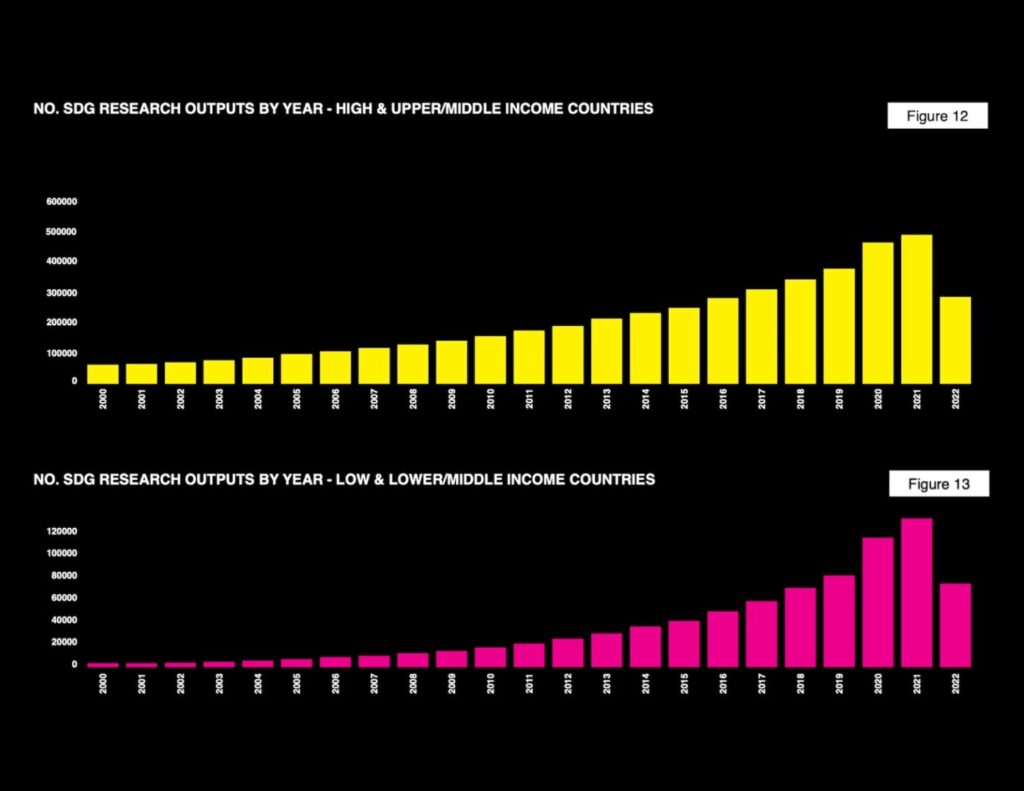A white paper commissioned by Times Higher Education (THE), and produced in collaboration with Prince Sultan University and Digital Science, titled ‘Research in the Context of the United Nations Sustainable Development Goals (SDGs) in the Developed and Developing World: Evidence From the Past 15 Years’ was released last week. The white paper utilizes data from Dimensions to uncover significant gaps in research funding, collaboration and assessment between developed and developing countries. The analysis – the most comprehensive of its kind to date – shows that lower income countries struggle to gain recognition for their contributions towards the SDGs.

The authors, including Digital Science’s Ann Campbell and Juergen Wastl, have sought to redress this imbalance through a series of recommendations:
- Targeted interventions to support lower-income countries, promote research infrastructure and provide funding opportunities to bolster their research capacities and collaborations.
- Continued use of THE Impact Rankings to help address global inequalities and promote strong SDG partnerships between regions.
- Use of comprehensive and (if needed) bespoke metrics that capture the multidimensional aspects of research impact aligned with the SDGs, to provide valuable insights and guide policy-making and funding decisions.
- Incentives at local and international levels to accelerate SDG research and research collaboration between high-income and lower-income countries, to help uplift scholars from countries that suffer from structural, historical and contemporary imbalances of power in the global research ecosystem.
Download the whitepaper
Read the press release and blog from Digital Science
